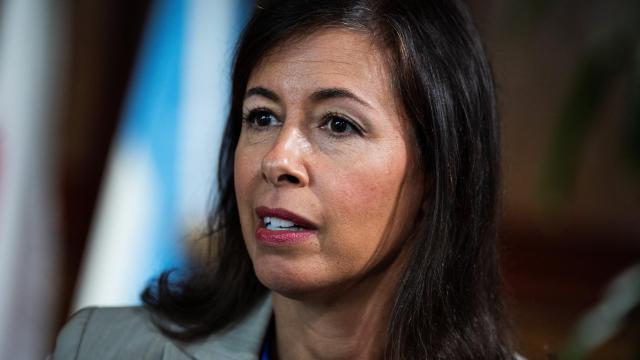The Federal Communications Commission (FCC) is getting ready to launch its own Space Bureau, expanding on its role in regulating a rapidly evolving industry in Earth orbit.
On Monday, the FCC adopted a plan to reorganise the agency, transforming its International Bureau to a Space Bureau and Office of International Affairs. The latest move is an effort to become more prepared for dealing with the growing satellite industry and allocate more resources towards its regulation.
“The satellite industry is growing at a record pace, but here on the ground our regulatory frameworks for licensing have not kept up,” FCC Chairwoman Jessica Rosenworcel said in an emailed statement. “Today, we are moving forward with our plan to prepare for what comes next.”
To which she added: “A new Space Bureau at the FCC will ensure that the agency’s resources are appropriately aligned to fulfil its statutory obligations, improve its coordination across the federal government, and support the 21st century satellite industry.”
The FCC still needs Congressional and other approvals to formalise the new arrangement and make it official. The FCC has not yet stated who will lead the soon-to-be established Space Bureau.
Rosenworcel had first announced the plan to form a Space Bureau in November 2022 as a way for the FCC to keep up with its increasing duties for the satellite and communications industry. Over the past two years, the FCC has received applications for 64,000 new satellites and witnessed an eight-fold increase in the number of applications for fixed-satellite service gateway Earth stations, Rosenworcel stated at the time.
The reason why satellites fall under the FCC is because the agency regulates communications transmitted through radio, television, cable, wire, as well as satellites. The FCC licenses radio frequencies used by satellites and ensures that satellite operators properly handle their defunct satellite debris.
The new Space Bureau will take on responsibilities that already fall under the FCC, such as approving new satellite licenses, regulating orbital communications, and dealing with space debris, but at a wider scope. The FCC recently issued a new order that require satellites to reenter Earth’s atmosphere within five years of their retirement, rather than the previous 25-year deadline. That move was indicative of the commission wanting to expand its role in space since the FCC had not placed any guidelines regarding the deorbiting of satellites prior to that.
The FCC will also be more involved with space policies. “The Space Bureau will also serve as a focal point for coordination with other U.S. government agencies on matters of space policy and governance, and will support the Office of International Affairs for meetings with other countries, international organisations and foreign government officials that involve space policy matters,” the commission wrote in its order.
The space industry is relatively new and therefore still lacks a proper regulatory framework. The FCC might be swooping in just in time to take charge of the increasing number of satellites swarming Earth orbit, with the upcoming Space Bureau perhaps setting an important precedent for other regulatory bodies to join the party.
More: SpaceX Wants to Start Launching Its Next Generation Starlink Satellites Before the End of the Year
